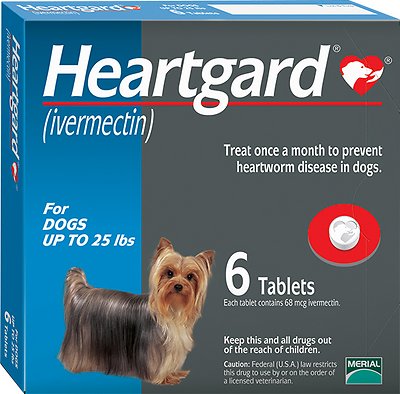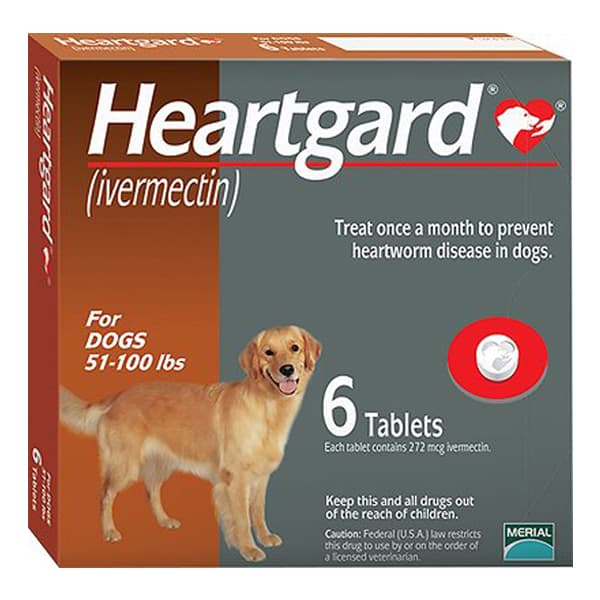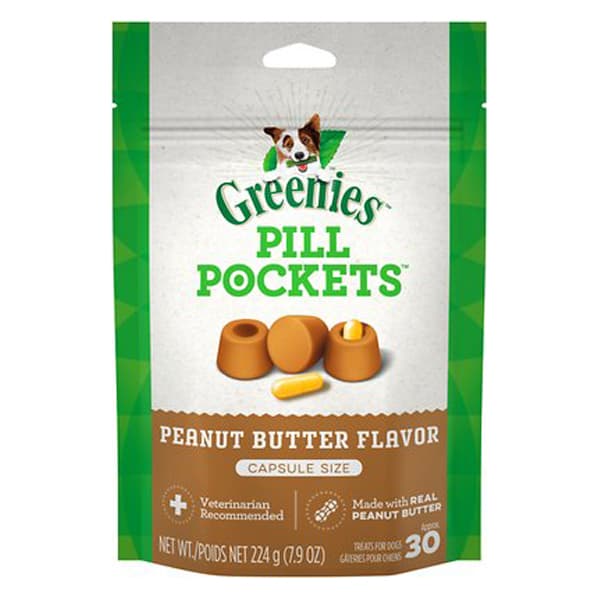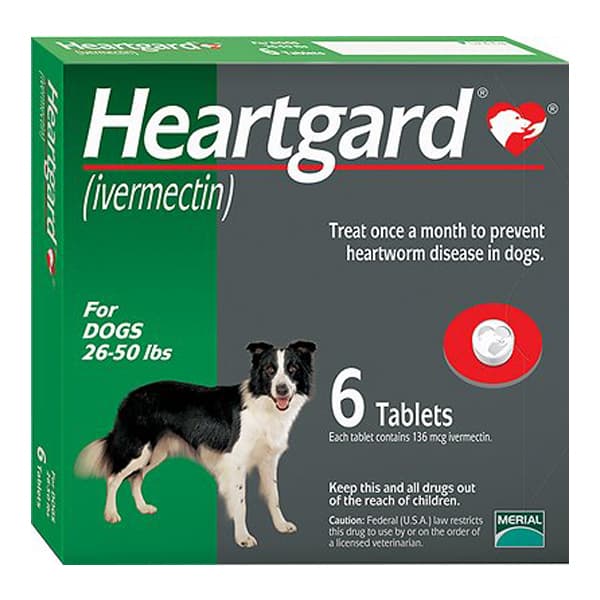When you take your dog for their annual veterinary check-up, their vet will often talk about heartworm and the dangers it can pose for your pet. While no parasite is good for your pup, some are much more devastating to their health in comparison to others. Parasites are all unpleasant to begin with but some such as the heartworm can be a serious threat to your dog’s wellbeing.
While there are many medications and vaccinations your dog will need throughout their lifetime, your dogs’ vet will suggest some that target particular illnesses. They do this when they think there is a potential threat to your pup’s long term health. They know there are parasitical bugs or worms that are problematic and need to not only be monitored but prevented where possible. This is especially true for dogs who are on the extreme ends of the age spectrum such as puppies or seniors as they often have weaker immune systems. A middle-aged adult dog has much more chance of beating a parasite with less difficulty than the others. The vet will want to make sure your dog is parasite-free to protect not only your dog but other pets and people in your household.
While parasites can often be passed animal to animal and animal to people, not all of them can be. Heartworm is one of those that can not be directly passed on to others. However, if a dog is bitten by an infected mosquito then you have a problem with the transfer of the parasite and the illness it can bring. If you think your dog may have a potential infection of heartworms, you need to take them to their vet sooner rather than later. While they won’t infect you or your other pets through slobbery kisses, their infected blood can be passed through the pesky mosquito that may fly around your home.
Heartgard, or Ivermectin, is a veterinarian prescribed medication for your dog that is taken once per month to prevent the heartworm parasite, Dirofilaria immitis. This medication specifically targets this parasite but also combats infections of hookworm, roundworm and some mites as well.
Heartgard works against the heartworm larvae by interfering with their central nervous system once they are in your dog. While this interference works well, it doesn’t work against the adult heartworms so ongoing preventative care is important. Your vet will offer a secondary medicine to combat the adult ones and then keep your pup on the Heartgard to kill the larvae and stop future infections.
Heartgard isn’t difficult to give to your dog. It is taking orally once every month, preferably on the same day so their medical coverage is thorough. You always want prevention at its fullest to halt any possible outbreaks. Your dog shouldn’t mind taking the pill as it’s chewable and beef-flavored to entice them to take it. While many people think they only need to give their dog this medicine in the warmer months of the year, it's actually better to give it year-round just in case your dog has been exposed earlier in the year. Taking it year-round means year-round prevention.
Parasites That Heartgard Prevents in Your Dog

Heartgard protects your pets from a few different parasites but the highlighted one is heartworm. This particular parasite is probably the most concerning when it comes to potential illness from an infection. Heartworm is Heartgard’s main target, but it will also work against hookworm, roundworm and some form of mites. While all aren’t going to have a critical impact on your dog’s health, they can all cause problems in the long run.
Heartworm, Dirofilaria immitis, is a parasite your dogs’ veterinarian will warn you about due to its invasive and dangerous nature. It's something that your pup will be checked for regularly. The threat of this particular parasite is that it can end up in your dogs’ heart, lungs or both and cause significant damage to these organs. The damage these parasites do can lead to heart failure and death. Worm is a deceptive name as you tend to picture an earthworm shaped invader but in reality, these heartworms can grow to 12” in length once they hit their adulthood. They look like a long string of pasta, but their size can be an issue along with their invasiveness.
A secondary issue with these particular parasites is that your dog can have more than a single worm living in them. These parasites do not pick an exclusive host but will share. Multiple infectors are even more problematic as it means your dog is fighting them on multiple fronts. Heartworm is not passed from dog to dog directly but through mosquitos. Many say you only need to give your dog the meds during mosquito season but in reality, it should be year-round to make sure there is never larvae left that were laid before the medication regimen was begun.
How will you know if your dog has heartworm? It's not always easy to tell as the symptoms may stay hidden for a time after the initial infection. However, there are symptoms you can watch for that will give you clues. The following are signs that your pup might have a potential medical problem with heartworms:
Heartworm is extremely problematic as it's not like other parasites that are attacking the gastrointestinal system. The fact that it attacks the heart and lungs means it can be extremely dangerous right from the beginning. Prevention is important as your dog will have to have aggressive treatment if they are present. Not only is it hard on your dog but it can often cost $1000 for the full treatment to get rid of the adult worms.
Roundworm is ascarids that enter into your pup and live in their bowels. These small nematode worms are light in color and only a few inches long. You can often see them in your dogs’ poop or vomit. While not all dogs will present symptoms showing infection, many will. You may see:
Roundworms are visible if you are looking for them when your dog is sick or in their stool. Their veterinarian can conduct some tests to make sure you are correct in your observations. If it is discovered that your dog has these worms, your pup will have to take medications to get rid of them as well as start a preventative one such as Heartgard.
Puppies have a higher chance than most dogs of getting roundworm as it can be transmitted from their moms both before birth and after. They are infected once they get the eggs into their bodies. These larvae travel to their liver and trachea causing them to cough. Which means they end up swallowing the larvae easing their way into the gastrointestinal tract. Once they reach there, they grow into adult worms and begin feeding off your dog. This problem can be cyclical if there are litters of puppies or young dogs so many veterinarians will make sure deworming is done very soon after birth to make sure the puppies are healthy and not passing the worms around to each other.

Hookworms, ancylostoma caninum or ancylostoma basiliense, are little parasites that travel to your dog’s intestine. They do what many other internal parasitical worms do and latch onto the wall of the intestine. Hookworms do this with a hook that is actually described as like teeth or plates. Like the others, they get their nutrition from your dog’s blood vessels and intestinal
contents. They embed themselves with hook-like teeth or plates. They feed on your dog’s blood vessels and matter. As with heat and roundworms, hookworms are not looking for a host without other worms. A dog can have multiple infectors at one time. The issue with this is the more worms, the more blood loss and lack of nutrition for your pup. You should be aware of the signs that show there is a potential infection of these worms to make sure your dog can be cared for a medicated as needed to regain their health. Look for the following:
Many parasitical worms present many similar symptoms and can lead to secondary issues that can become quite serious. If you suspect there is a hookworm issue, then your dog needs veterinary assessment and care to avoid further infestation and illness. You will need medication for your dog and a plan to make sure they have preventative medicine in place as well.
Mites are one of the more annoying parasites for your dog. They are irritating, uncomfortable and can be easily passed on. Sarcoptes scabiei, which causes mange in dogs, and ear mites can be prevented if the proper medication is given every month.
Sarcoptes scabiei (scabies) is a mite that you want to do your best to make sure your dog doesn’t contract it. Once these types of mites infest your dog, they are difficult to stop. They get under your dogs’ skin and implant their larvae. Unfortunately, this is the start of a cycle as they hatch from their larval stage, reinfect with other larvae and continue to grow. Their numbers increase with every larva, which only makes your dog iller. These mites don’t have a long life span and can only survive a maximum of 6 days but they can infect a dog repeatedly in that short time. A secondary threat is that they aren’t only able to infect other dogs but humans as well. If a person comes into contact with a pup that has them, then that person becomes at risk as well.
If your dog has these mites, you will notice them itching a lot and getting bumps like hives on their skin. They may also get sores, scabs and bare patches where the hair has disappeared. Prevention is important not just to prevent the primary infection but to reduce the chance of a secondary one as well.
Along with scabies, your dog can be infected with ear mites also called Otodectes cynotis. These are small bugs that get into their ear canal. While they are usually found in the ear area, these mites can also go elsewhere on your dogs’ body. This increases the chance of a possible secondary infection. These mites can cause an awful odor in your dogs’ ears along with constant shaking of the head to stop the irritation. If you notice a crust or smell, then you should take your dog to their vets to have them diagnosed so proper treatment can take place.
Heartgard needs to be prescribed by your dogs’ vet. It is said to be safe for:
While some vets would suggest that the initial dose of Heartgard be given close to the beginning of mosquito season, many would say your dog should get it all year round. Giving your pup a dose per month for the full year means there is no chance that there will be a late in the season infection nor any larvae left in the months either before or after. There are some places where cold winters may lessen the need to have the drug year round but, in most cases, a full year of coverage is important for maintaining long term coverage.

Heartgard covers your dog from various parasites, specializing in targeting heartworm. While packages offer standard coverage for particular sizes, dogs who are larger will need to talk to their vet to assess how to mix and match to get the right amount for them. While some come in beef-flavored, there are also tablets that are tasteless letting you hide them in food or in a pill pocket. Either works just as well as they have the same medicinal qualities so choose what is right for your particular pup.
Dogs up to 25lbs - Blue package with 68mcg of Ivermectin per chew
Dogs 26-50lbs - Green package with 136mcg of Ivermectin per chew
Dogs 51-100lbs - Brown package with 272mcg of Ivermectin per chew
Heartgard Side Effects in Dogs
It's very rare to find a drug that doesn’t not have a warning of some side effects. This does not mean they are going to happen in every dog that takes it, but the warnings are there to make sure pet owners are aware that there might be a strong reaction to the drug for an unexpected or unknown reason. It's important to know what the signs are in case your dog has a rare reaction. Many of these reactions come from a dog getting too much of the medication or it is interacting with something else. There is also the possibility that if your dog is a certain breed they may react where other breeds wouldn’t. If your dog is heartworm positive and being treated, they should not take this med either. It may also interact with a flea drug called Comfortis. Some of the named side effects are:
The list of side effects is always somewhat scary to read, however, the chances of these side effects actually effecting your dog are rare. Heartgard is well tested and known to be safe. The list of side effects is to warn owners what to look out for on the off chance that their pup reacts badly to the medication.
Product Image | Product Name | Buy Now |
|---|---|---|
Heartgard Unflavored Tablets for Dogs, up to 25 lbs, 6 treatments | ||
Heartgard Unflavored Tablets for Dogs, 51-100 lbs, 6 treatments | ||
Greenies Pill Pockets Canine Real Peanut Butter Flavor Dog Treats | ||
Heartgard Unflavored Tablets for Dogs, 26-50 lbs, 6 treatments |
Final Thoughts
Heartgard for dogs is a good, high-quality medication that will take on one of the more troublesome parasites they might become infected by. Not only is heartworm unpleasant to think about in any capacity but it's dangerous for your dog to get. The fact that Heartgard medication takes on hookworm, roundworm, and mites as well as an added bonus while you try to protect your pet from both the primary and secondary medical issues these parasites can cause.
Keeping your pet from becoming infected by these parasites is important to their health as well as the health and well being of other pets and people in your household. While heartworm itself isn’t transferable without a mosquito go-between, the other parasites can move from one to the other with little issue. Preventing these parasites of all kinds means that you prevent illness, discomfort and vet visits for both you and your dog. Using Heartgard is a great way to protect your canine family member and keep them healthy and comfortable.For more helpful articles on raining a healthy dog visit our home page.










